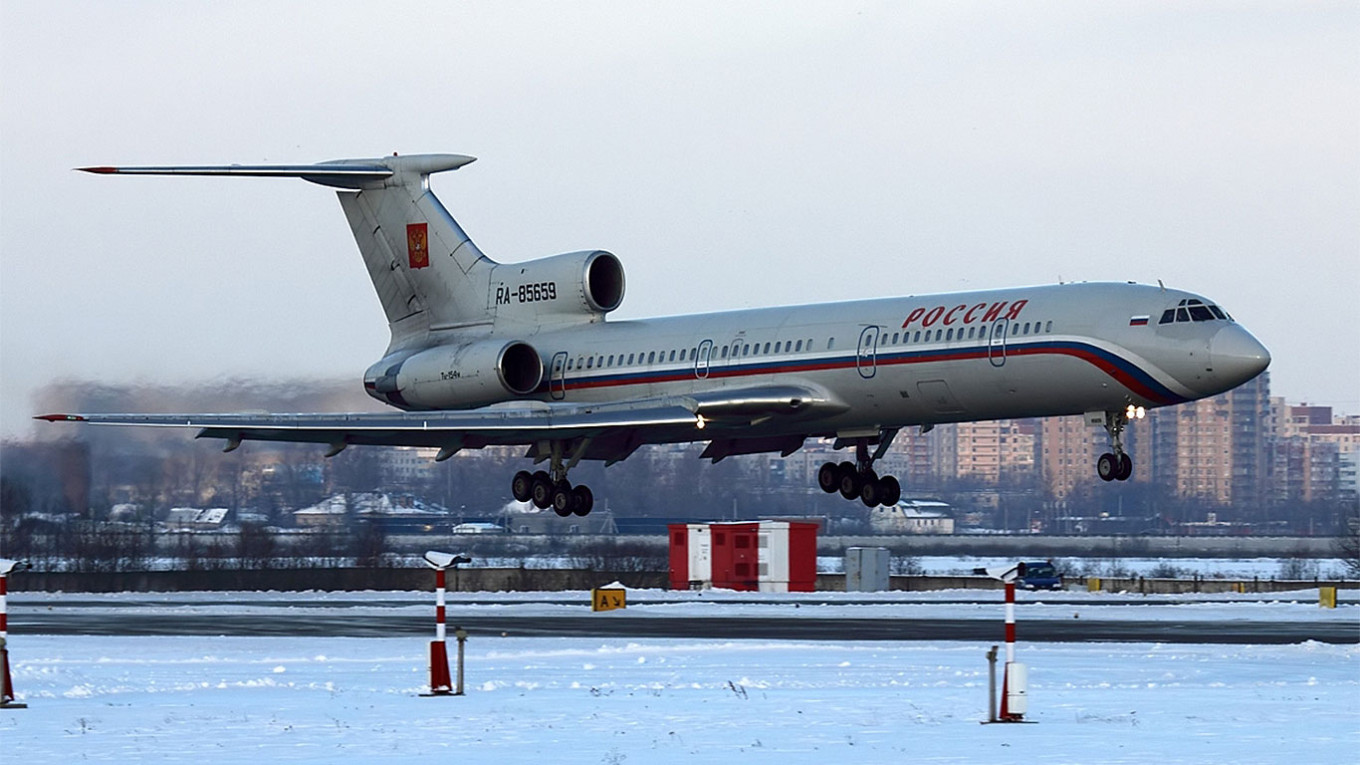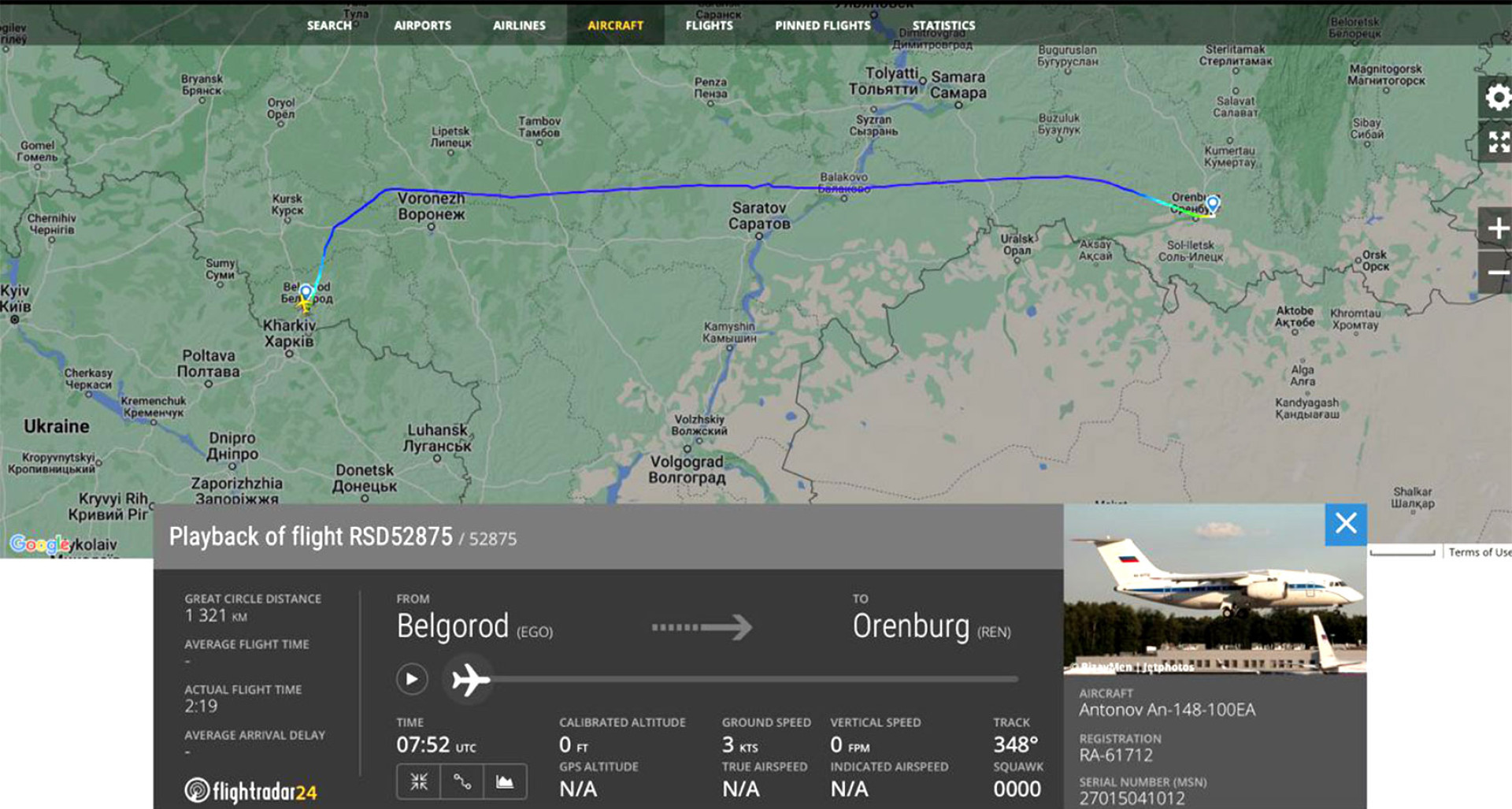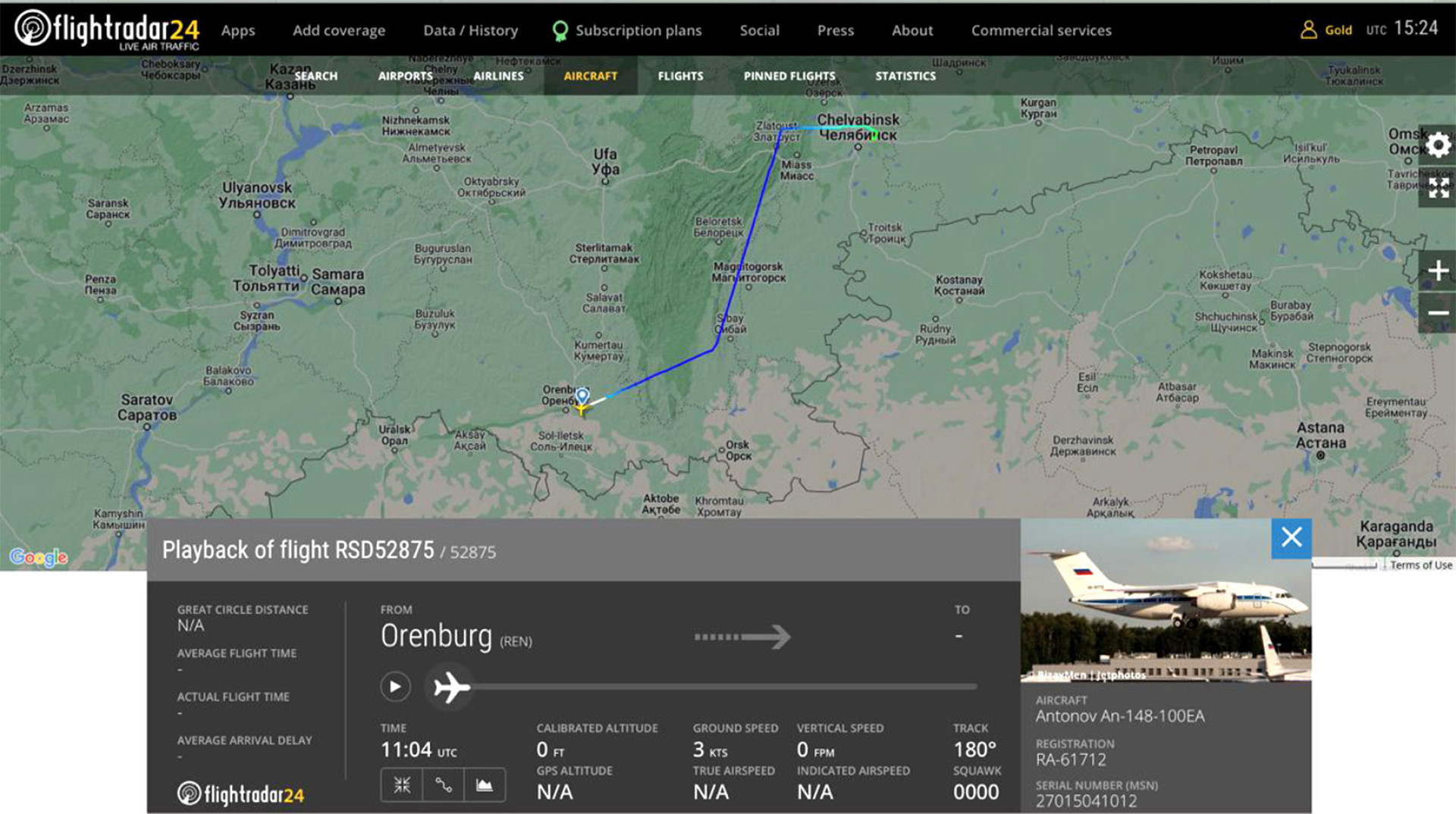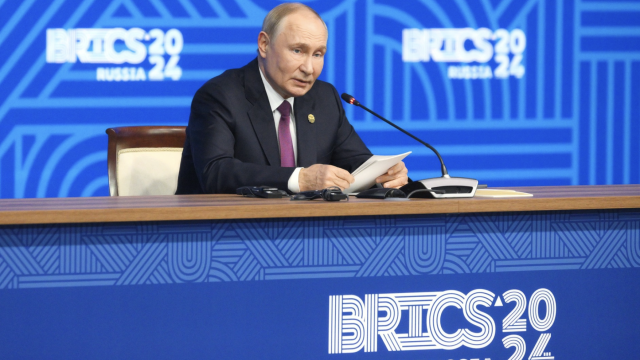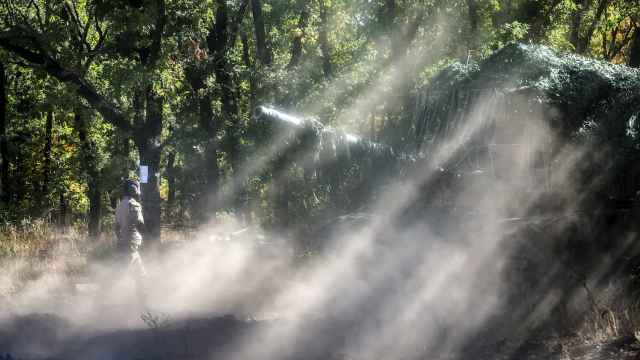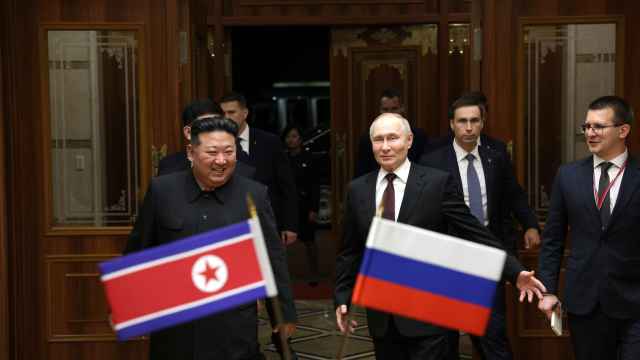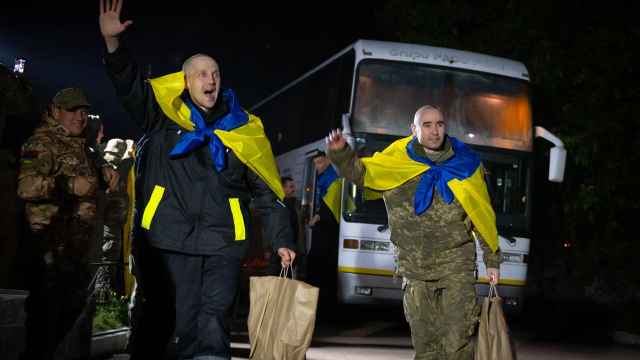Russia’s presidential air fleet is quietly repatriating the bodies of soldiers killed in Ukraine and sending them to local morgues in small numbers to prevent public backlash, The Moscow Times’ Russian service reported Monday, citing flight tracking data, morgue workers and the soldiers’ relatives.
Rossiya Airlines, a subsidiary of the state-owned Aeroflot Group, operates 68 jets and helicopters for the Kremlin that include Russia’s equivalent of Air Force One.
State media in the central Russian republic of Tatarstan filmed one of the jets, a Tu-134a-3 airliner with the registration number RA-65911, returning the region’s first dead soldier on March 2, 2022.
President Vladimir Putin had flown on a plane with the same RA-65911 tail number to a neighboring Russian region in 2016, according to a local newspaper that photographed its landing.
Flight tracking tools have spotted several of the Rossiya aircraft, which form the airline’s Special Flight Detachment, crossing to and from the Russian regions between January and early February 2023.
The Moscow Times has found a correlation between these flights’ arrivals and local news coverage of soldiers’ funerals that followed.
A Rossiya jet with the RA-61720 number landed in the central city of Yekaterinburg on Jan. 23, followed by reports of a serviceman and a Wagner mercenary being buried there in the next 24 hours.
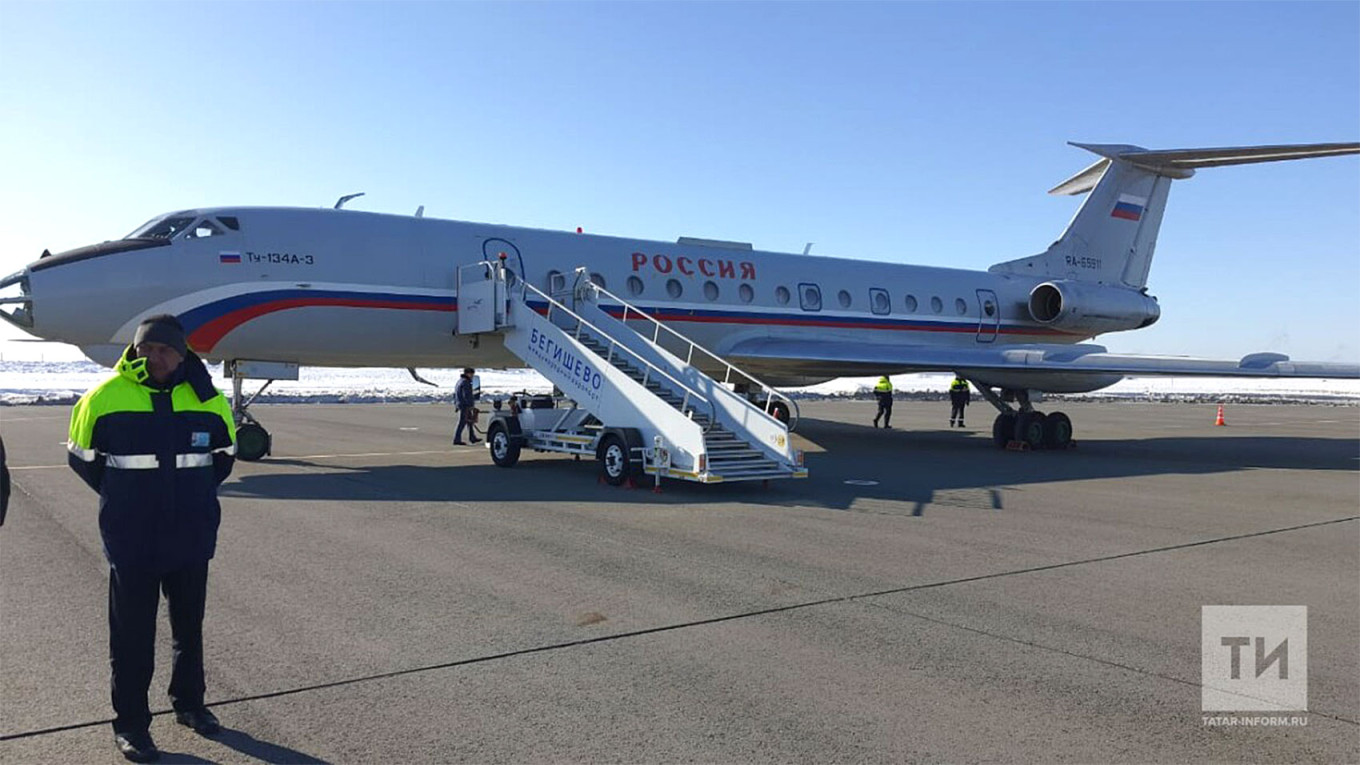
FlightRadar then registered RA-61720 flying to Ufa, the capital of the neighboring republic of Bashkortostan, on Jan. 13, the same day that Putin traveled there.
An RA-87972 tail number jet landed in the Tatarstan city of Nizhnekamsk on Jan. 25, with the name A.A. Yangibayev seen on one of 11 zinc coffins caught on video. A week later, Tatar residents posted news of Yangibayev’s funeral on social media.
The same pattern of presidential aircraft flights followed by soldiers’ funerals was observed on Jan. 26 in the northwestern regions of Arkhangelsk and Vologda and between Feb. 8-12 in the Orenburg and Chelyabinsk regions.
While many Rossiya aircraft depart from Moscow, others turn their transponders on over the Lipetsk region, which is equidistant from Moscow and the Ukrainian border, and the neighboring Tambov region, which is among a handful of Russian territories where wartime flight bans are in effect.
It is impossible to establish the exact location where the soldiers’ bodies were picked up.
But the slain soldiers’ relatives told The Moscow Times’ Russian service that they were distributed from a military hospital in the southern city of Rostov-on-Don, less than 100 kilometers from eastern Ukraine.
“While I was there, I saw six large coroner vans that reeked of rot and corpses,” the son of a dead soldier who declined to give his name said of his visit last fall to the Rostov-on-Don hospital to identify his father’s body.
“I saw them being unloaded, entire cars of corpses, zinc [coffins] on top of zinc [coffins]. It was a frightening picture for me, even though I work in intensive care and I’ve seen corpses. But I’ve never seen so many before,” he said.
The Moscow Times has sent requests for comment to Russia’s office of presidential affairs and the Defense Ministry regarding the findings.
Russian military and aviation experts said they had not been aware of the presidential fleet’s involvement in the repatriation flights.
An unnamed Defense Ministry source told The Moscow Times’ Russian service that two of its flight detachments are engaged in repatriation flights alongside the delivery of weapons and manpower. Of the 60 of these military aircraft listed by FlightRadar, 46 have been active over the past year.
Morgue workers told The Moscow Times’ Russian service that municipal authorities had ordered them to give out no more than one or two bodies to family members per day.
“Ours is a small city, so distributing so many dead relatives at once would create panic,” a morgue employee in the Orenburg region told The Moscow Times.
“[The authorities] also want to avoid a situation where relatives would crowd the morgue lining up for the dead. There could be fainting spells and scandals. Generally speaking, they decided not to escalate the situation,” the employee said.
An independent media tally of fatalities based on open-source funeral reports and other publicly available data places Russia’s military death toll at more than 14,000.
The Russian Defense Ministry last reported its death toll in September at under 6,000.
Western defense officials say up to 180,000 Russian soldiers may have been killed or wounded in the year since they were ordered to invade Ukraine.
A Message from The Moscow Times:
Dear readers,
We are facing unprecedented challenges. Russia's Prosecutor General's Office has designated The Moscow Times as an "undesirable" organization, criminalizing our work and putting our staff at risk of prosecution. This follows our earlier unjust labeling as a "foreign agent."
These actions are direct attempts to silence independent journalism in Russia. The authorities claim our work "discredits the decisions of the Russian leadership." We see things differently: we strive to provide accurate, unbiased reporting on Russia.
We, the journalists of The Moscow Times, refuse to be silenced. But to continue our work, we need your help.
Your support, no matter how small, makes a world of difference. If you can, please support us monthly starting from just $2. It's quick to set up, and every contribution makes a significant impact.
By supporting The Moscow Times, you're defending open, independent journalism in the face of repression. Thank you for standing with us.
Remind me later.


